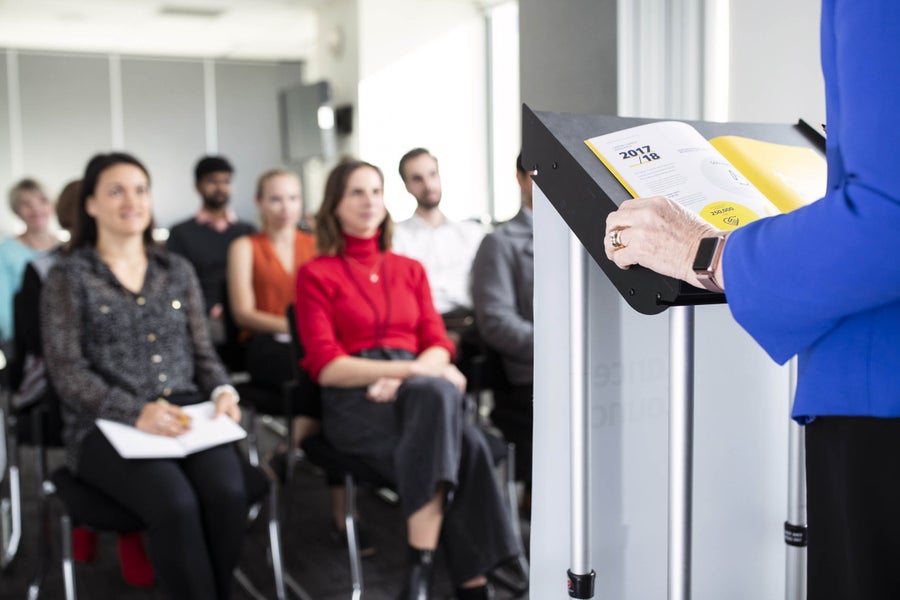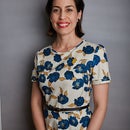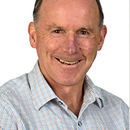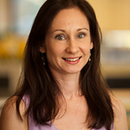Our spokespeople


Anita Dessaix
Chair, Public Health Committee, Cancer Council Australia
Anita is Chair of Cancer Council Australia's Public Health Committee and Director of Cancer Prevention and Advocacy at Cancer Council NSW.
She has more than 15 years' experience within the NSW public health sector, including 12 years' experience in cancer prevention specifically. As well as working as a private consultant, she has previously held senior management positions in public health organisations including the Cancer Institute NSW and the NSW Ministry of Health, where she gained specific expertise in tobacco control and skin cancer prevention.
Within her current role at Cancer Council NSW, Anita is responsible for leading strategy and program efforts in the two Cancer Council NSW focus areas of Prevention and Advocacy. The Division's focus is on reducing the burden of cancer and reducing cancer risk across NSW communities, through targeted programs, policy, advocacy and retail stores.
As Chair of Cancer Council Australia's Public Health Committee, Anita is a leading advocate for cancer prevention, particularly in a policy context. Topics she can discuss include cancer risk in relation to tobacco control, sun protection, nutrition and physical activity, alcohol and obesity. Anita holds a Master of Arts in Communication Management from the University of Technology, Sydney and a Master of Public Health from The University of Sydney.
For media interviews with Anita, contact the Cancer Council Australia media team on (02) 8256 4109 (our media hotline is available inside and outside of business hours) or email media@cancer.org.au.

Professor Tim Driscoll
Chair, Occupational and Environmental Cancer Risk Committee, Cancer Council Australia
Professor Tim Driscoll is Chair of Cancer Council Australia’s Occupational and Environmental Cancer Committee and a leading expert in environmental and workplace cancer risks.
Tim is also Professor in Epidemiology and Occupational Medicine in the Sydney School of Public Health at the University of Sydney.
Tim’s main areas of interest include the burden of occupational disease and injury; occupational cancers and exposure to occupational carcinogens, particularly asbestos. He is also interested in improving the communication of epidemiology and cancer principles and findings to the general public.
He also leads the occupational risk factors expert working group in the Global Burden of Disease study.
Tim is a regular commentator on environmental and occupational cancer prevention and as Chair of Cancer Council Australia’s Occupational and Environmental Cancer Risk Committee can discuss environmental cancer risks, common cancer risks in the workplace and action that should that be taken to reduce Australia’s workplace cancer burden.
For an interview with Professor Driscoll, please contact Cancer Council Australia's Media Team on (02) 8256 4109 (the media hotline is available inside and outside of business hours). You can also email the media team on media@cancer.org.au.

Clare Hughes
Chair, Nutrition and Physical Activity Committee, Cancer Council Australia
Clare Hughes is the Chair of the Nutrition and Physical Activity Committee, Cancer Council Australia. With extensive experience in the health and nutrition field, Clare leads the national committee to encourage Australians to lead a healthy lifestyle through education about the importance of physical activity and diet in preventing cancer, as well as advocating for health policy to support healthy lifestyle measures.
Clare is also the Nutrition Program Manager at Cancer Council NSW where she leads a team of dietitians and nutritionists responsible for nutrition-related cancer prevention projects. She leads projects including the Healthy Lunch Box website, advocacy to reduce cancers associated with increased bodyweight, alcohol, unhealthy eating and physical inactivity, strategic research into food labelling and food marketing to children.
Prior to joining Cancer Council, Clare spent eight years as the Senior Food Policy Officer at Australia’s consumer organisation CHOICE. She was responsible for ensuring the interests of consumers were considered during food policy processes. During this time, she led CHOICE’s policy and advocacy projects on obesity, food labelling, food marketing, genetic modification and food safety. Clare also has more than 15 years’ experience representing both public health and consumer interests on the nutrition and food policy issues such as the NHMRC Dietary Guidelines Working Committee and the Health Star Ratings Technical Working Group.
Clare is available for interview and discussion on topics including tips to improve diet and lifestyle, how diet and lifestyle can reduce cancer risk and the impact of nutrition, physical activity and alcohol on cancer risk.
Clare can also talk about Cancer Council’s policy recommendations for physical activity and nutrition including the implementation of a comprehensive obesity prevention strategy, restrictions to junk food marketing to children, added sugar labelling and alcohol reforms.
Clare holds a Bachelor of Science (Nutrition), Master of Public Health and a Graduate Certificate in Public Policy.
For an interview with Clare Hughes please contact Cancer Council Australia’s Media Team on (02) 8256 4109 (the media hotline is available inside and outside of business hours). You can also email the media team on media@cancer.org.au.
Explore our latest news and updates
